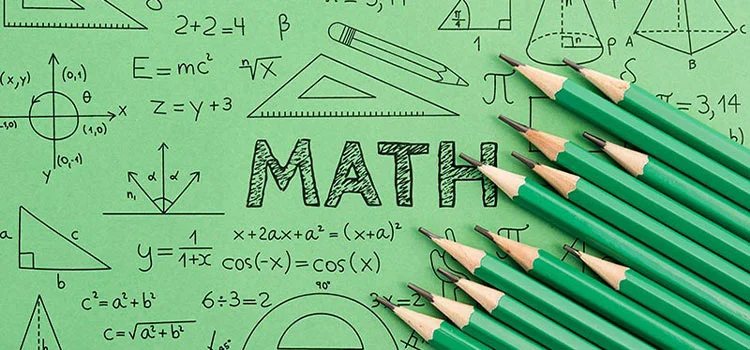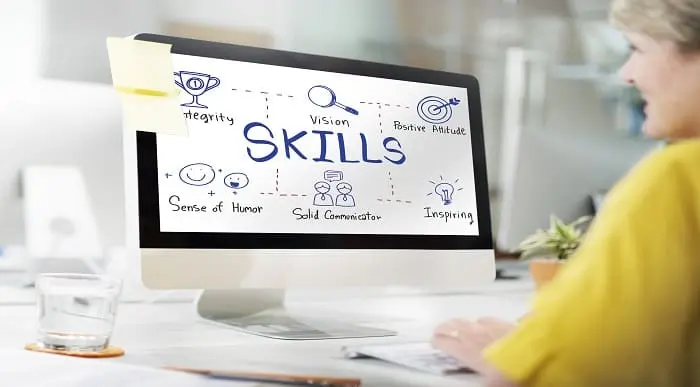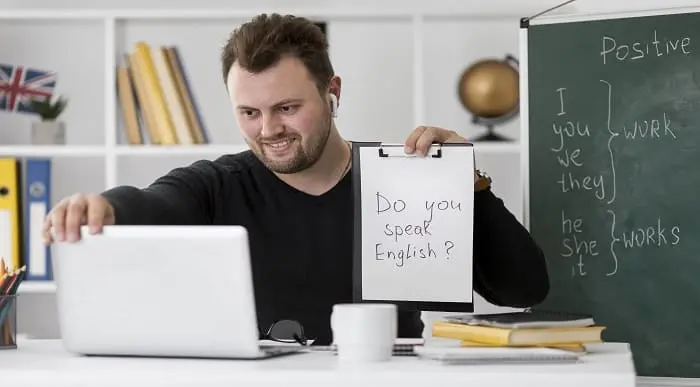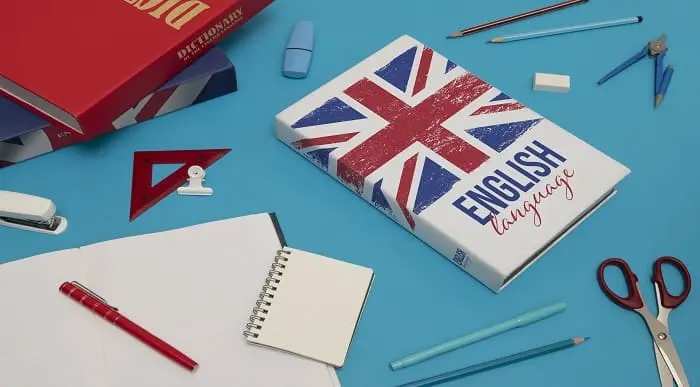Functional Skills
How to Become Better at Math?
How to become better at math? What does it actually take to improve student success as well as their interest in math? Society for Industrial and Applied Mathematics (SIAM) is a Philadelphia-based group that asked these very questions. More than 400 U.S. high school math teachers participated in their focus group study. Their advice related to teaching and learning mathematics gave valuable insights to these questions. These teachers were all coaches of student teams that participated in the M3 Challenge. M3 Challenge is a national, internet-based contest with no registration or participation fees.
Thousands of high school juniors and seniors participate in this contest. They have to develop a solution to a real-world problem using mathematical modelling. To add some drama to the event, the students are given only 14 hours to work on the problem. The 2018 event was the 13th annual contest.
According to Michelle Montgomery, the project director of the MathWorks Math Modeling (M3) Challenge at SIAM- “The good news is that students can have success in math class with the right effort, attitude, and behavior, regardless of a natural affinity or being ‘good at math’. Using quantitative skills to solve real, open-ended problems by employing the mathematical modeling process is a great way to get started.”
So the next challenge is to decipher the “right effort, attitude, and behavior” so that we can have tangible feedback on what has to be done to become good at math. Here are some tips and tricks to become better at math.
Table of Content
How to Become Better at Math?
First of all, there’s no surefire way to make you better at math magically. Math is a complex subject. It takes practice and the mental strength to retain that practice for a long time so that mathematical problems will become easier for you. The more you can focus, the easier it will become for you.
However, it’s not like just blindly solving some math problems will make you better at math. There is definitely a method. But, any single approach may not benefit you all that much. So it’s not a “one size, fits all” type of situation when it comes to math.
Instead, you have to explore different ways and use them in a combined fashion that caters to your specific math needs. Everyone’s mental capacity is different. As such, how much time you need to spend on a single trick to become better at math also depends entirely on you.
For instance, you may need to spend a lot of time learning to calculate mentally or by hand instead of using a calculator if you find out that it’s holding you back. Someone else may need to focus on trigonometry so that their skills in solving geometry problems can increase over time. Then, any other person may observe that they can’t properly understand math questions in general or where to start when solving those problems. In that case, they may need to learn to structure a question and then answer those questions in distinctive steps so that the problem as a whole will not overwhelm them.
As you can see, how quickly you can become better at math depends totally on your specific scenario. So, we compiled a list of 15 tips and tricks to become better at math so that you’ll have a frame of reference to start working on your math skills.
15 Tips and Tricks to Become Better at Math
1. Confidence will help you go a long way
Math is definitely a tricky subject. You have to approach it with confidence. Literally, anyone can become better at math. All they need is the practice and the determination to stick to that practice until they become good at the subject. There will come a time when you will think that the worries that you plagued yourself with because of your fear of mathematics were baseless and childish. But until you come to that point, steadfastness will dictate your progress.
So be confident that you have the capability and the resilience to go the extra mile so that math will no longer be a subject that you fear. Instead, you will start enjoying math.

Functional Skills Maths Level 2
- Accredited Courses
- Tutor Support Included
- 3 Installment Plan at checkout
- 14 Days Money Back Guarantee
2. You’re likely at least as bright as the typical math student
You’re likely at least as smart as the typical math student, or you may not be. But that’s not the main point here. The point is to make yourself believe that you’re at least as smart as the typical math student. If you can make this statement go through your head and stay there, it will help you tons to boost your confidence.
3. ‘Delete’ your fear of questions
The first hindrances that will hold you up are shyness and fear. A lot of students fear the chances of embarrassment in the class if their questions to their teachers come up as ‘silly’. However, remember, a class is a centre for learning. There are no “silly questions” in a classroom. If you ask whatever comes up in your mind, you only risk laughing about it with your classmates. But, if you don’t ask the question, there is no telling when you will get your chance again to learn the thing.
Fear or shyness in a classroom environment or any learning environment for that matter is the very thing that is in fact silly. The only thing it will end up doing is stagger your progress. So, don’t ever feel shy to ask questions.
4. ‘Delete’ your fear of discussions
This point goes hand in hand with our previous point. Your classmates are a very useful tool. If you are an introvert, force yourself out of your habit and start making friends with your learning partners. Learn to communicate with them, share your thoughts with them and encourage them to be your study partners. Their insights will help you, and vice versa.
You can cut off a lot of homework by just discussing it with your study partners. You will also discover that there are a lot of people in your class that are also introverts like you. But if you encourage them and give them the space to open themselves up, you may even become best friends. Who knows? So, don’t be discouraged if someone gives you a negative notion that you should not approach them. A classroom has all kinds of human beings. Not everyone will be equally useful. But the useful, resourceful ones will use their resources to help you enhance your knowledge.
A by-product of this approach is that you’ll also develop people skills in this way which will help you tremendously in your professional life.
5. Make space for endless curiosity
Another point that goes well with our previous two points is to be curious. Mathematicians are curious by nature. Every problem is a source of curiosity for them. These problems are not limited to math queries. They can be about life, about nature, about religion, literally anything under God’s sun. There is famous question asked by the famous theoretical physicist Michio Kaku–
“Is God a mathematician?”
That’s because our universe is littered with math problems and their solutions. Any subject you pick, you’ll see how math is intertwined with it. But to enjoy this beautiful relationship between our universe and math, you have to be curious first. You have to give deep thoughts about this relationship. You have to learn to ask questions and how to discuss them with people. Only then will you see your mind open up to the endless sea of curiosity that is mathematics.
6. Don’t just memorise rules, instead try to understand them
If I tell you that from today, the first thing you have to do when you wake up is to go stand up under the sun for five minutes, instead of brushing your teeth. Almost everyone will wonder why. There has to be “a method to the madness”. Logic has to be there behind my reasoning.
Now apply this same logic to your math problems. Say you’re given an arithmetic problem. You go on to learn that doing an L.C.M (Least common multiple) of the numbers you’re dealing with will solve the problem. Now, if you just blindly solve the problem without thinking about it, you’re doing yourself a disservice. How?
If you face similar problems like this arithmetic problem, you can certainly solve those too. But there will always be thousands of other scenarios where the same method can be applied. But because you don’t see the similarity of the questions between those problems, you’ll never know that you already know a strategy to solve those problems.
So don’t see a math problem in terms of the rules to solve it. Instead, learn the rule and then try to understand why that rule has to be applied and what the rule entails. Yes, it will take you five more minutes to think about it, but in the end, you’ll get to the nitty-gritty of these problems in such a fashion that will come in mighty useful in your later math ventures. Plus, this is also a very useful way to memorise the math rules. You’ll always have a “memory bell” because of your deep dive into the problem that will help you keep the rule intact in your mind.
7. Learn to ‘control’ your desires regarding math problems
Your desire, initiatives to satisfy that desire, and motivations behind doing all these are critical in mathematics. If a particular aspect of mathematics bothers or annoys you, investigate if it’s an irrational fear. If it is irrational, our first point, “Confidence will help you go a long way”, applies. However, if this negative mindset of yours stems from a lack of desire because of the complexity of a particular field of mathematics, look for a way to make it desirable to you first.
Your desire will make way for you to be successful in tackling that particular field of mathematics. Your motivations will come from this naturally. Remember, ‘desire’ is critical here. If you don’t learn to somewhat control your desires, math will almost always disappoint you. A negative mindset will always take you down no matter what. So don’t let that happen to you.
8. Look for authentic problems that’ll help you engage with math
Our seventh point also goes hand in hand with our previous point of discussion. When it comes to your desires regarding math problems, some help is available here. If you learn to apply math to real-world scenarios, not only will it help boost your interest tremendously, it will also help you understand them better.
You will start seeing annoying math problems differently, and you will instantly feel an urge to dive a little bit deeper as you begin seeing the utility of going that extra mile to understand those math problems. Humans are practical beings. Theories don’t always attract us. Instead, we tend to measure things in terms of their practicality. If you find a practical use for your math problems, it will help you increase your knowledge in an astronomical fashion.
9. Attitude of your surrounding people regarding math is important
If you have a relative or a friend who has a negative mindset towards math for any reason, it’s best to ignore them entirely if your goal is to become better at math. If you mingle with them and math somehow comes up in your discussion, what do you think will happen?
They will indeed find a way to show you how math is hard, useless or uninteresting.
Instead, mingle with people who will encourage you to face difficulties in your life- be it math or anything else. They will encourage you and lend a helping hand to ensure that you succeed in your ventures. They may even mentor you themselves if they have the capacity for it.
10. Master the basics
For our tenth point, we’re going back to the basics. By basics, I’m referring to the calculations that involve numbers, sizes, or other measures. Understanding complex math requires you to have a good solid foundation of these basics as they are the building blocks upon which complex problems stand. So what are these basics? Consider-
BODMAS or PEMDAS
BODMAS stands for brackets, orders, division and multiplication, and addition and subtraction, while PEMDAS stands for parentheses, exponents, multiplication, division, addition, subtraction. You’ve likely already come across them in your high school mathematics. They refer to the order of operations in math problems. Although the concept is basic, they’re incredibly useful as messing up the order of operations in a math problem will set you up for failure for sure. You’re most likely never getting the correct answer out that way.
Addition, subtraction, multiplication, division
Another important concept is knowing the shortcuts or tricks to do addition, subtraction, multiplication, division.
Consider this simple example. Say you’re figuring out 14×9. But you don’t know the multiplication table for 14. You can use 14×10 to figure out 14×9. 14×10 is 140; now subtract 14 from it, which gives you 126, and that’s your 14×9. Voila!
If you become familiar with these concepts so you can do your basic addition, subtraction, multiplication, division without the help of a calculator, it’ll lend you a massive help in your math journey.
Fractions and decimals
The same goes for fractions and decimals. Decimals are a component of a whole number while fractions are the numerical representation of the decimal. Ratios (1:2 or 50:100, same concept) are also related to fractions. If you build up a basic understanding of addition, subtraction, multiplication, division of fractions and decimals, it’ll increase your arithmetic abilities.
Percentage
I’m going to assume you understand what percentage is. But that’s not important here. Percentage problems are very useful in real life. Discounts, nutrition values in labels, interest rates- these are usually calculated using percentages. If you build up an ability to do simple percentage-based calculations in your mind, it will build up a solid foundation for you.
Visual representation of data
Numbers are commonly presented in various ways, so they can be better understood. One of these ways is the visual representation of data like trend lines, data points, and axes. Developing a solid understanding of these concepts will assist you in creating graphs and charts, making it easier to communicate your ideas.
Unknown variables
If you’ve done high school algebra, you might have already guessed what I’m talking about. It’s our X’s and our Y’s in algebra.
Sometimes solving arithmetic problems with unknown variable concepts from algebra is much easier. Consider the following problem:
“Problem:
At Honey Beepot, the bulk price for honey is $2.50 per pound, with a minimum purchase of 20 pounds. If Bobby paid $80 , 80 for some honey, by how many pounds did Bobby’s purchase exceed the minimum?
Explanation:
We can use x to represent the total number of pounds of honey Bobby purchased, then subtract 20 from it to find the number of pounds by which Bobby’s purchase exceeded the minimum.”
11. Regular & consistent practice
So say that you’ve followed all ten suggestions that I’ve mentioned above and you have noticed that you’re progressing in building your capabilities in doing math.
However, you’ll likely forget everything and will have to start fresh if you become lazy for a month or two because regular & consistent practice is a huge deal in this subject. Practice your math skills as often as possible; do it every day if you can make room in your busy schedule.
On-Demand Accredited Courses
Analyze data quickly and easily with powerful PHP library! All datasets included where beginners welcome!
12. Establish a routine
I could have mentioned this point with our 11th tip. But as you can see, I didn’t. There’s a reason behind it. Yes, regular & consistent practice is important, but so is a routine. Not just any routine, a structured routine. A structured practise routine will help you be better at math much faster than just blindly going at the concept.
Take help from a friend who is good at math or your math teacher to help you establish a routine. Build a structured routine where you start at the basics and make your way up the complex chains of math problems, introducing you to new concepts along the way. Also, structure it in a way where after mastering a concept, you don’t waste too much doing the same patterns of problems over and over. That way, you can be efficient in managing your time as it’s a limited resource for every one of us.
13. Download useful math apps and bookmark useful websites
There are several incredibly useful tools, available for millions of students. Learn to use the math apps and websites. If you’re an advanced student and you want a more focused practice tool, you can use, for example, GMAT Club. It all depends on your needs. You can also take free mock tests and check your maths skills and track your progress.
14. Include math tests in your routine
Don’t forget to include math tests in your routine. You can download millions of sample question papers or design your own using the math apps and websites mentioned before in this blog in minutes. As I said, humans are results-driven. It gives us the motivation to move ahead. Tests will help you do this in your math journey. It’ll help you quantify your progress as well as your shortcomings.
15. Consider enrolling in private maths tutorials and courses
We’re lastly going to talk about enrolling in private math tutorials. You have already seen in our discussion here how important it is to take help from others and try to incorporate study partners into your math regime. The same goes for useful math apps and websites. However, one shortcut that will come in mighty handy for you is to enrol in math tutorials and courses.
You will have instructors who have already done the homework of structuring your math journey for you. They will teach you according to that routine and also design your tests accordingly. The whole thing will save you time and effort.
You can consider starting from Level 1 math functional skills and moving onto Level 2. If you want to participate in competitive exams like GMAT, SAT, CAT, Math olympiad, then you can also look for courses that focus on these.
Conclusion
How to become better at math is a common question asked by so many students. However, the question doesn’t have an easy answer. This is why instead of straight-up telling you what to do to become better at math, I instead opted to give you 15 tips and tricks. You can then mould them to your circumstances. Because every student’s aptitude is different, sticking to a single method may prove unfruitful. Just know that you can do it. Be confident and just practice, practice and practice. The more you let go of negative notions about yourself, the more you’ll progress rapidly.
What to Read Next:
- Functional Skills Practice Tests: Justify Your Skills Before Seating Exam
- What is Functional Skills Maths Level 2 Equivalent To? Qualification
- Essential Functional Skills Booklist for Study and Practice
- Functional Skills Pass Rates – Comprehensive Analysis Update
- Does Functional Skills Count as a GCSE?
- What is Pearson Functional Skills?
- Triangles ABC and CDE are Mathematically Similar?















